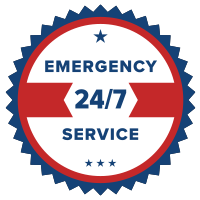7 Costly Plumbing Mistakes That Wreck Septic Systems
Your plumbing and septic system work together like a team—when one fails, the other suffers. Unfortunately, many homeowners unknowingly make plumbing mistakes that can damage septic systems, leading to costly repairs, nasty backups, and premature failure.
In this blog, we’ll uncover the 7 most common plumbing mistakes that can destroy your septic system, how to avoid them, and what to do if you suspect damage. Whether you’re building, remodeling, or simply maintaining your home, these insights will help you protect your investment and avoid unnecessary stress.
Why Plumbing Mistakes Are Dangerous for Septic Systems
Your septic system is more than just a tank in the ground. It’s a carefully balanced ecosystem designed to treat household wastewater using bacteria, filtration, and time. Poor plumbing habits can:
- Overwhelm your tank with excess water
- Kill the beneficial bacteria needed to break down waste
- Send harmful chemicals or solids into your drain field
- Cause costly backups and overflows
Let’s dive into the top plumbing mistakes that threaten septic health—and how to fix them fast.
1. Flushing Non-Biodegradable Items
Flushing anything other than human waste and septic-safe toilet paper is a recipe for disaster. Common offenders include:
- Wipes (even those labeled “flushable”)
- Feminine hygiene products
- Paper towels
- Dental floss
- Cotton swabs
These items don’t break down in the tank and can clog your pipes or fill up your septic system prematurely.
Solution: Place a small trash can in your bathroom and educate your household about what can and can’t be flushed.
2. Using Chemical Drain Cleaners
Pouring chemical drain cleaners down sinks, tubs, or toilets may seem like an easy fix, but these harsh products kill the helpful bacteria your septic system depends on. Without those bacteria, solids don’t break down, causing tank overflows and drain field failure.
Solution: Use natural alternatives like baking soda and vinegar or call a professional plumber for safe drain cleaning.
3. Overusing Water in a Short Timeframe
When you run multiple appliances at once—like the dishwasher, shower, and washing machine—you can overload your septic tank with too much wastewater, too fast. This reduces the time solids have to settle, pushing them into your drain field.
Solution: Space out high-water-use tasks throughout the day or week. For example, do one load of laundry per day instead of five in one afternoon.
4. Connecting a Garbage Disposal to the Septic System
Garbage disposals grind food waste into tiny particles that are hard for your septic system to process. This leads to faster sludge buildup, increased pumping frequency, and even clogs.
Solution: Avoid using a garbage disposal if you’re on a septic system. Compost or trash food scraps instead.
5. Leaky Faucets and Toilets
A single dripping faucet can waste hundreds of gallons of water per month—and that extra water ends up in your septic tank. Over time, constant leaking can cause system overload and premature failure.
Solution: Repair leaks promptly and install water-saving devices like faucet aerators or low-flow toilets.
6. Routing Rainwater or Sump Pumps into the Septic System
It might seem convenient to direct gutters or sump pumps into your septic system, but this can cause immediate and severe problems. Excess water drowns your drain field, which needs dry soil to filter wastewater properly.
Solution: Ensure all exterior water drainage is routed away from your septic system and drain field.
7. Neglecting Routine Septic Maintenance
Failing to pump your tank or inspect it regularly allows solids to build up, reducing system efficiency and increasing the risk of backups or environmental contamination.
Solution: Schedule a septic tank pumping every 3–5 years, or more often depending on your household size and water usage. Also, have a professional inspect your system annually.
Warning Signs Your Plumbing Is Hurting Your Septic System
Watch for these red flags:
- Gurgling sounds in drains
- Slow-draining sinks or tubs
- Sewage odors in the home or yard
- Frequent need to plunge toilets
- Wet or mushy patches above the drain field
If you notice any of these symptoms, it’s time to call a professional before a minor issue becomes a major (and expensive) one.
Best Practices to Protect Your Septic System
Here are expert-approved plumbing and lifestyle habits to safeguard your septic system:
| Habit | Benefit |
| Use septic-safe toilet paper | Prevents clogs and build-up |
| Install water-efficient appliances | Reduces system overload |
| Space out laundry loads | Allows time for waste processing |
| Keep grease out of drains | Prevents pipe blockages |
| Use strainers in sinks | Catches food and debris |
| Educate family members | Promotes consistent habits |
Frequently Asked Questions (FAQs)
Q: Is it okay to flush “flushable” wipes?
A: No. Even though they’re labeled “flushable,” these wipes don’t break down like toilet paper and can clog your pipes or fill your septic tank prematurely.
Q: What should I do if I use a chemical drain cleaner?
A: Limit future use and call a septic professional. They may recommend bacteria-boosting treatments to restore your tank’s health.
Q: How can I test for leaks in toilets or faucets?
A: Add food coloring to the toilet tank—if it appears in the bowl without flushing, you have a leak. For faucets, monitor your water bill or listen for drips.
Q: Is grease really that harmful to septic systems?
A: Yes. Grease solidifies in pipes and tanks, leading to clogs, foul odors, and possible system failure. Never pour it down the drain.
Q: What kind of toilet paper is septic safe?
A: Look for labels that say “septic-safe” or conduct a quick test: place a sheet in a jar of water, shake it, and see if it breaks down quickly.
Contact Us for Septic-Friendly Plumbing Help
If you’re concerned about your septic system or need professional maintenance, One Way Septic is here to help. Located in Acworth, Georgia, we specialize in providing reliable septic services tailored to the unique challenges of our region. Contact us by phone at 404-775-1164, or visit our website to request a service or consultation. Our team is ready to assist you with all your septic needs, ensuring your system remains in top condition all year round.
avoid these costly plumbing mistakes avoid these costly plumbing mistakes avoid these costly plumbing mistakes avoid these costly plumbing mistakes




